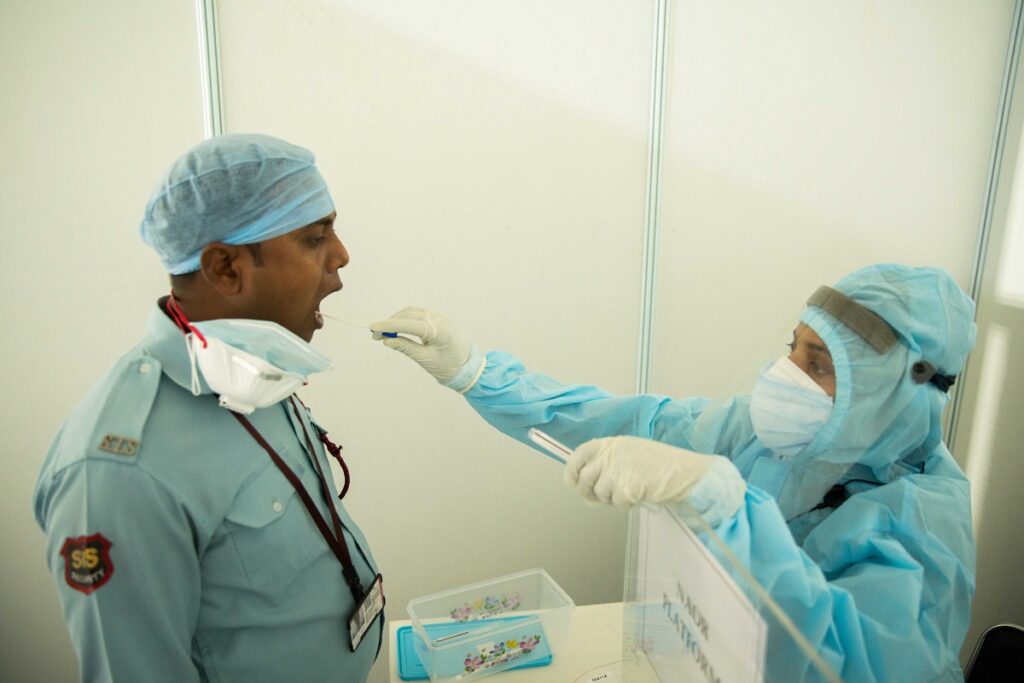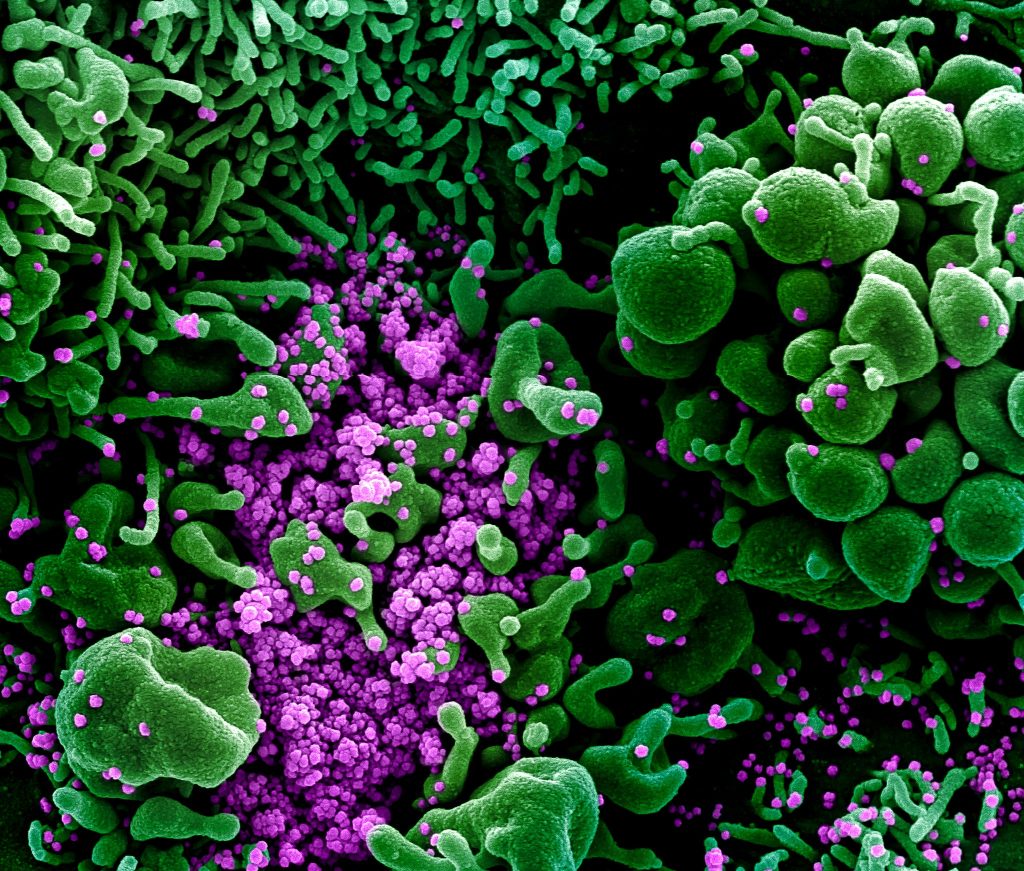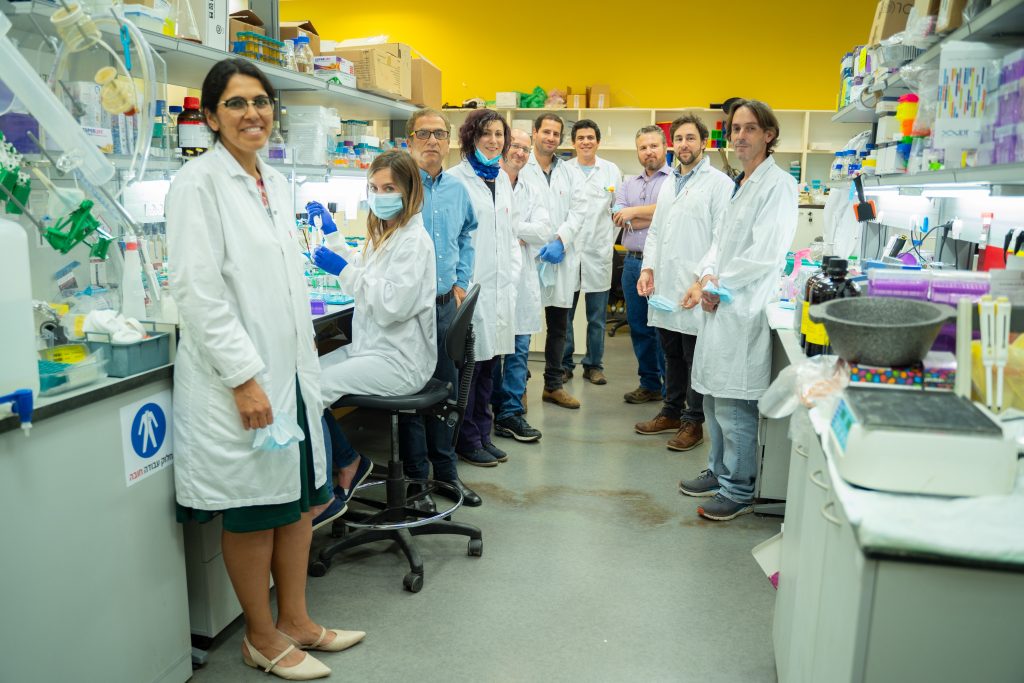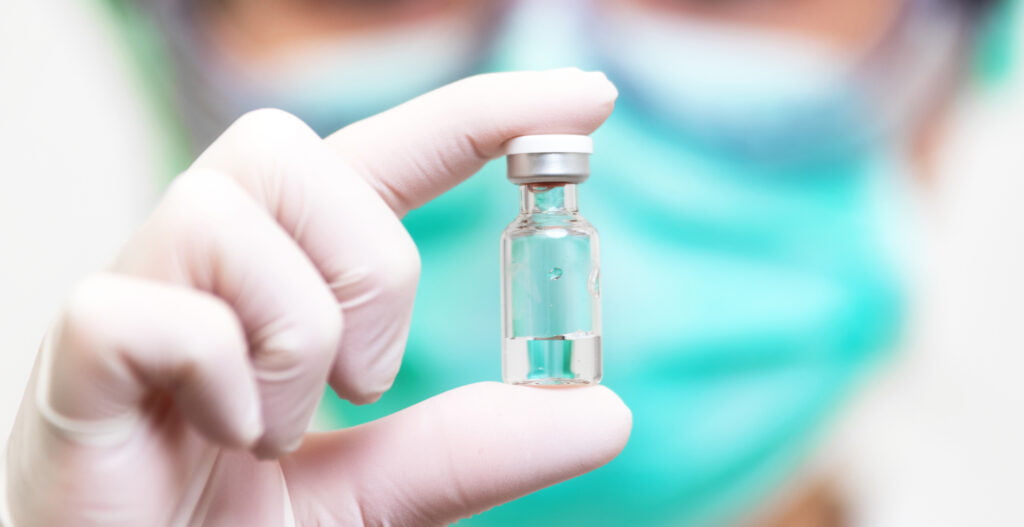Israeli researchers from the government-run Israel Institute for Biological Research (IIBR) expect to begin human trials for the COVID-19 vaccine candidate they developed after the high holidays this fall.
Prime Minister Benjamin Netanyahu spoke with IIBR Director-General Professor Shmuel C. Shapira on Thursday, as well as with heads of the IIBR research team and “congratulated them on the progress in developing a vaccine against the coronavirus, ahead of the stage of human trials, which will start after the fall holidays,” the Government Press Office said in a statement.
SEE ALSO: Cholesterol Drug May Lessen COVID-19 Threat To That Of Common Cold – New Study
“I am pleased to hear about the progress and I want to congratulate you on it. Continue on this path with the maximum speed that you deem scientifically sufficient,” Netanyahu said, according to the announcement.
Defense Minister and Alternate Prime Minister Benny Gantz visited the Ness Ziona-based research institute on Thursday, the Jerusalem Post reported.

“Experiments on humans should begin after the Tishrei holidays,” Gantz was quoted as saying in reference to the first month of the Hebrew calendar when the high holidays begin. “The human trials will be conducted in collaboration with the Health Ministry…and according to all the processes required in terms of medical safety,” Gantz added.
Professor Shapira said the institute developed “an excellent vaccine” over the past six months. During the call with Netanyahu, he held up a vial and said: “This is the first vial of the vaccine.”
Netanyahu instructed that evaluations begin on the establishment of vaccine production in Israel “so that Israel will have safe and effective vaccines for all residents of Israel by the end of the first quarter of 2021.”
He also instructed that an outline be drawn up to allow other countries to purchase vaccine options from Israel. “The financing thus obtained will be able to assist in the establishment of production capabilities and processes,” he said, according to the announcement.

The premier tapped the IIBR, a governmental research center specializing in biology, chemistry and environmental sciences that falls under the jurisdiction of the Prime Minister’s Office, in early February to begin development on producing a vaccine.
Sign up for our free weekly newsletter
SubscribeThe institute has announced several developments since then. In June, researchers indicated that a vaccine they developed for SARS CoV-2, the virus that causes COVID-19, was found to be effective in trials involving hamsters, paving the way for testing with humans. Previously, the center reported “significant progress” on the vaccine and initial trials.
The secretive institute has also been working on researching potential treatments and in early May announced that it made a breakthrough on a treatment involving a discovered antibody that neutralizes the virus. That same month, it further announced that researchers found that a combination of two existing antiviral drugs for Gaucher disease appears to inhibit the growth of SARS CoV-2, and may work against other viral infections, including a common flu strain.

According to the June announcement, the scientists indicated that the vaccine candidate they designed used vesicular stomatitis virus (VSV), an animal virus that does not cause disease in humans, and in which the spike protein was replaced with that of SARS-CoV-2. VSV is also the basis for a separate, effective vaccine against the Ebola virus.
The vaccine, which they called recombinant VSV-ΔG-spike or rVSV-ΔG-spike, was tested on golden Syrian hamsters and was shown to be “safe, well-tolerated, elicits antibodies, [is] able to bind and neutralize SARSCoV-2 efficiently,” according to the study.
The race for a coronavirus treatment or vaccine
Close to 200 teams worldwide are working to develop a vaccine or a treatment for COVID-19. Twenty-five are currently under clinical evaluation. These include a promising vaccine candidate developed by Massachusetts-based company Moderna, which is currently in Phase III trials.
Another promising vaccine candidate, also in Phase III trials, was developed by the University of Oxford which recently signed a distribution agreement with drugmaker AstraZeneca.

In late April, Israeli scientists at the Migal Galilee Research Institute formed a new company, MigVax, to further adapt a vaccine they developed for a deadly coronavirus affecting poultry for human use. The scientists had been working for four years to develop a vaccine for IBV (Infectious Bronchitis Virus) which affects the respiratory tract, gut, kidney and reproductive systems of domestic fowl.
SEE ALSO: Israeli Researchers Say COVID-19 Vaccine They Developed Proves Effective In Animal Trial
MigVax raised $12 million in an investment round led by OurCrowd for further development of the vaccine. The startup hopes to begin clinical trials this summer.
Related posts

Editors’ & Readers’ Choice: 10 Favorite NoCamels Articles

Forward Facing: What Does The Future Hold For Israeli High-Tech?

Impact Innovation: Israeli Startups That Could Shape Our Future




Facebook comments